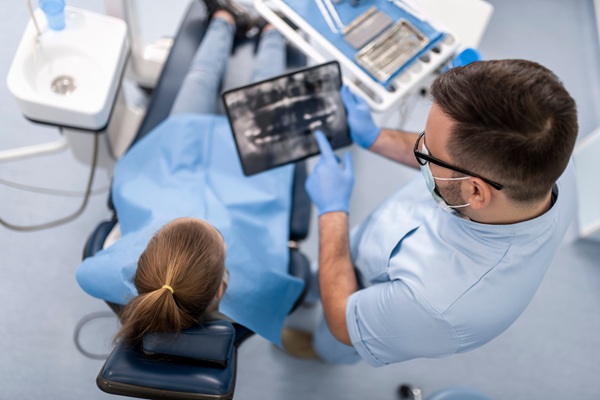 Many people use the terms dental office and dental clinic interchangeably. The confusion is understandable, but they are not exactly the same thing. Dental offices have to contain a dental clinic, but there are also dental clinics that exist in places other than dental offices.
Many people use the terms dental office and dental clinic interchangeably. The confusion is understandable, but they are not exactly the same thing. Dental offices have to contain a dental clinic, but there are also dental clinics that exist in places other than dental offices.
Key Distinctions
A dental clinic is a place where a dentist performs oral health treatments and dental procedures. All the necessary dental tools and equipment are typically housed in a single room. A dental clinic is a component of a dental office, and it is one of the most important parts because otherwise no examinations or treatments can take place.
Because a dental office is also a business establishment, it is the facility where the dentist and staff handle financial matters and clerical tasks. There are special areas within the office where the administrative staff handles the following day-to-day operations:
- Insurance claims
- Accounts payable and receivable
- Patient records
Not all dental clinics are housed in dental offices. Larger health-related establishments, such as hospitals or government offices, sometimes host dental clinics to provide services on an emergency basis or to low-income individuals. Dental schools sometimes have clinics where students provide treatment to patients under the supervision of their instructors as part of their studies.
Expectations
While both dental offices and dental clinics can provide treatments, the experience each one offers may vary in significant ways.
Services
A dental clinic ordinarily provides basic dental services, such as checkups, fillings and root canals. Patients seeking cosmetic treatments may need to go to a dental office. A dental clinic may be more likely to provide emergency after-hours care, while dental offices may be more inclined to keep traditional hours.
Cost
Since dental offices are business establishments that invest in state-of-the-art technology, the cost for services may be higher than at a dental clinic. Pricing at a dental clinic may be more affordable. For example, a government health office may provide reduced-cost services at a dental clinic to people who can demonstrate financial hardship. Dental schools may charge lower costs to allow students to practice performing examinations and treatments on actual patients.
Waiting
Dental clinics typically do not have reception areas. These may not be necessary because the clinic tries to see patients as quickly as possible. Dental offices, on the other hand, try to keep patients comfortable while waiting to see the dentist. There are typically reception areas with chairs and entertainment in the form of televisions or reading materials. The reception area may also provide toys to amuse children, particularly those who are very young and prone to boredom and fussiness.
Administration
The person who owns the dental office, or at least is responsible for running it, is usually a dental professional. A dentist working in a dental clinic, however, is more likely an employee rather than the individual running it. That responsibility generally falls to the administrative body that runs the facility in which the clinic is located. That may be a government agency or the board of a hospital or dental school.
Check out what others are saying about our dental services on Yelp: General Dentistry Services in Kennewick, WA.
Conclusion
A dental clinic and a dental office may offer the same basic services. However, the latter may provide more advanced services in a more comfortable environment.
Request an appointment or call Gledhill Dental at 509-800-8410 for an appointment in our Kennewick office.
Related Posts
Whether you have a cracked, chipped, or decayed tooth, a dental crown can restore it to its original shape. With proper care, these restorations can last about 15 years. The good news is that caring for crowns is straightforward, with most patients not needing to change their oral hygiene routine.Dental crowns are essentially caps that…
Full mouth reconstruction is a comprehensive dental treatment plan designed to restore a patient's smile to its optimal function, health, and appearance. It involves a combination of restorative and cosmetic procedures tailored to address various dental concerns, including missing teeth, severe decay, bite problems, and jaw misalignment. Understanding the steps involved in full mouth reconstruction…
Dental crowns may be the final touch after a root canal treatment. This therapy is your dentist’s effort to keep your teeth intact. It aims to remove the source of pain and infection. In some patients, extra tooth protection is necessary after a root canal. Here are the details about when dental crowns are necessary…


